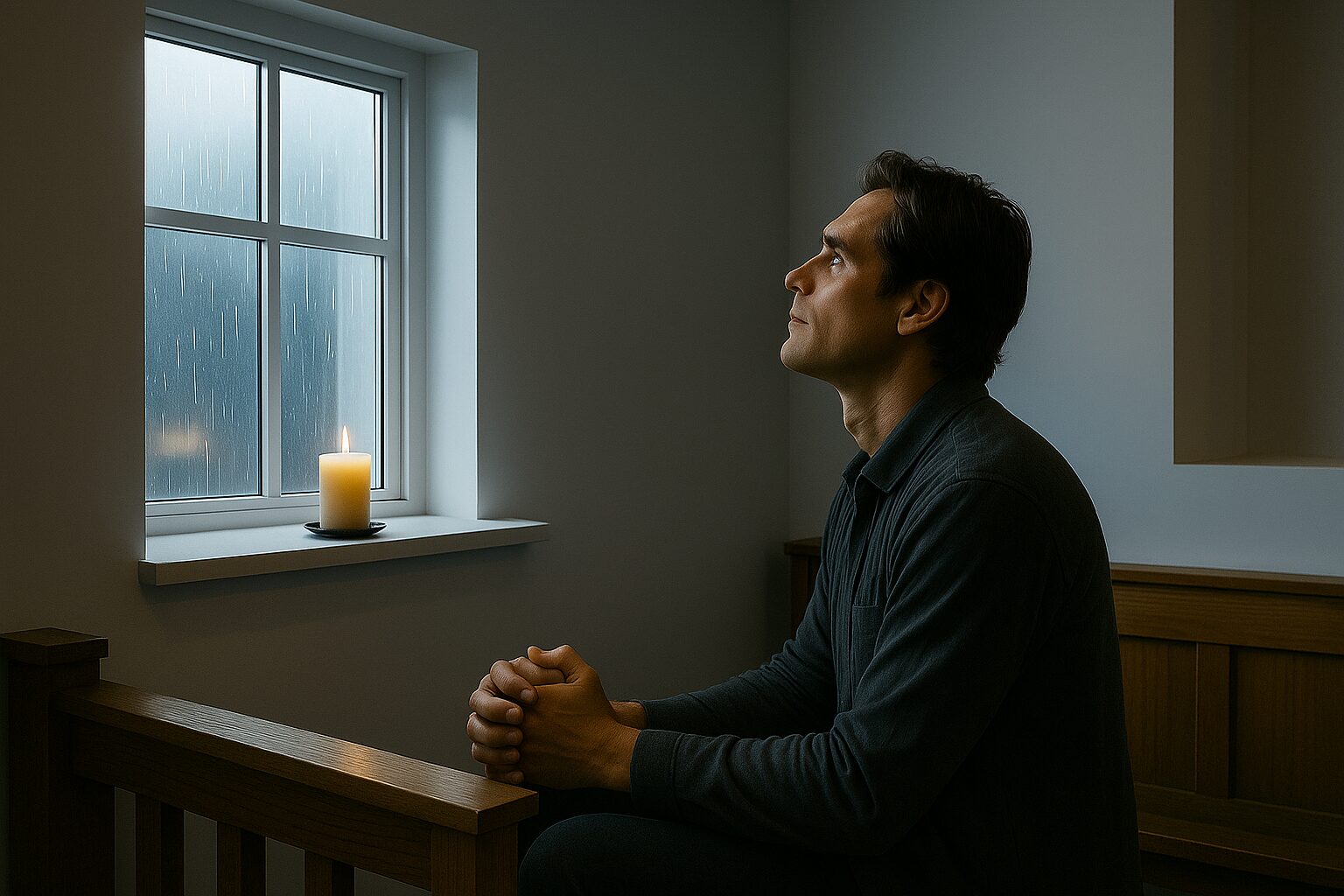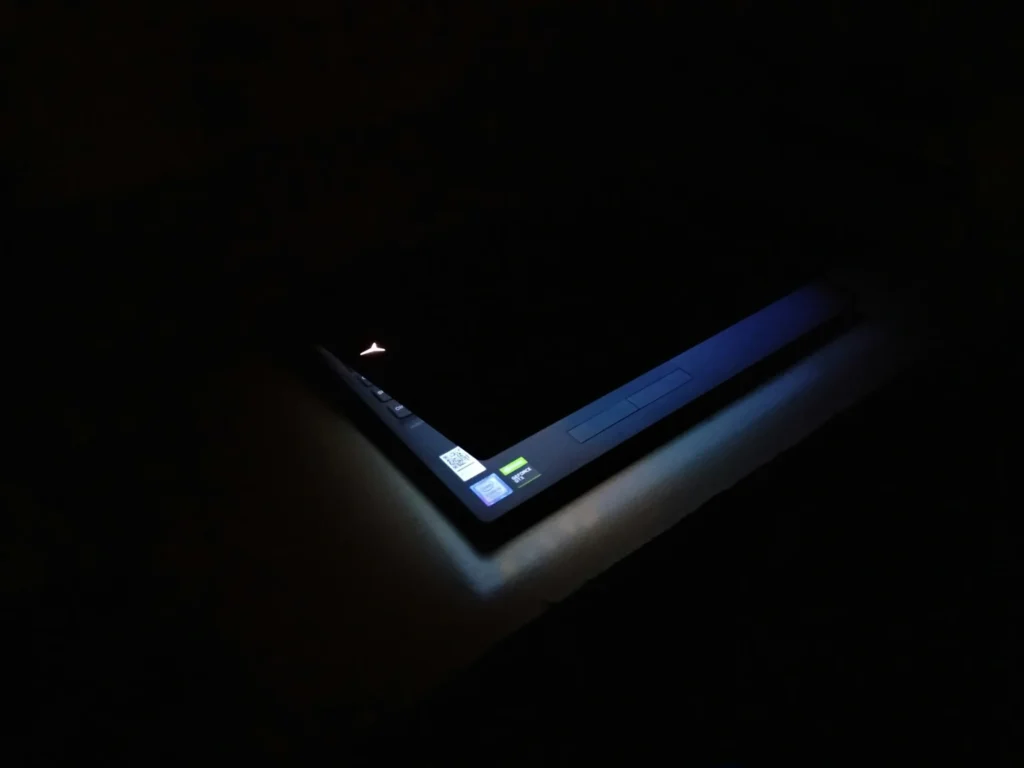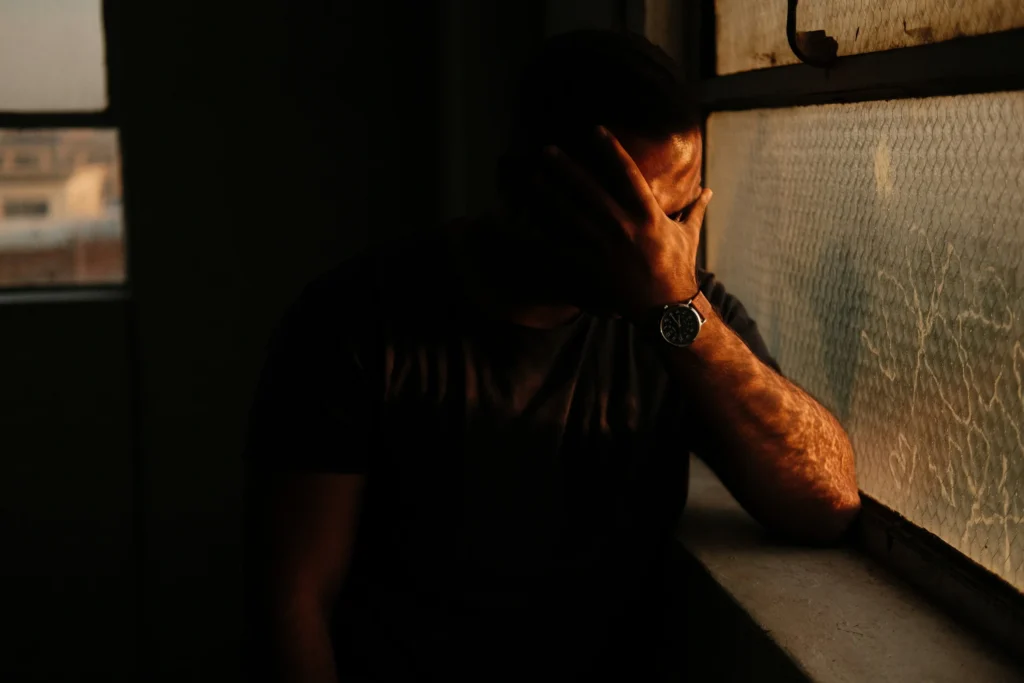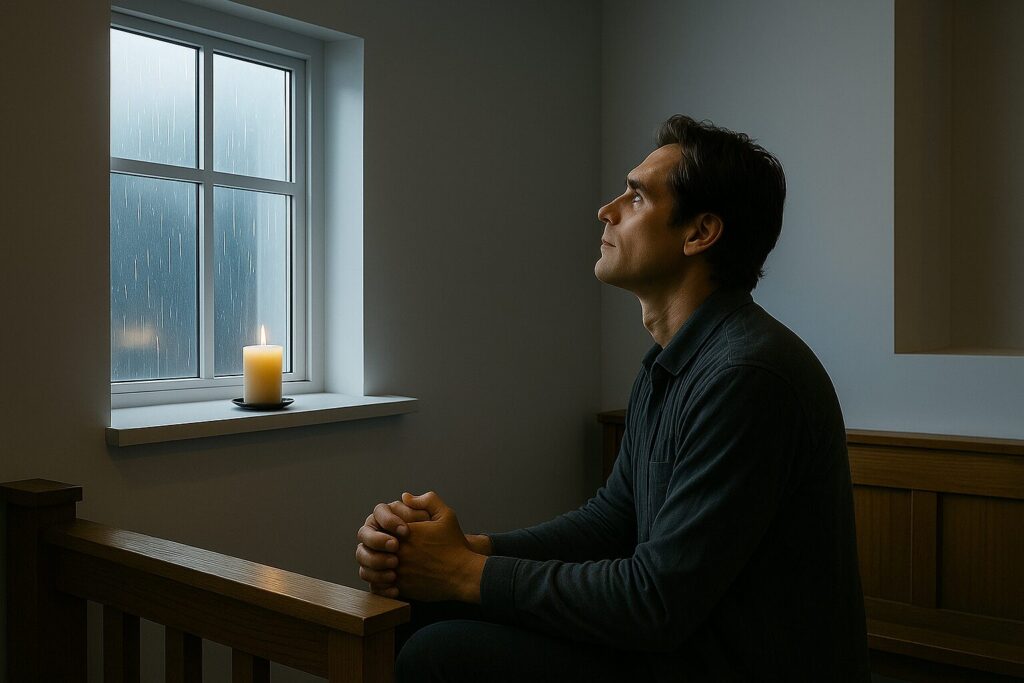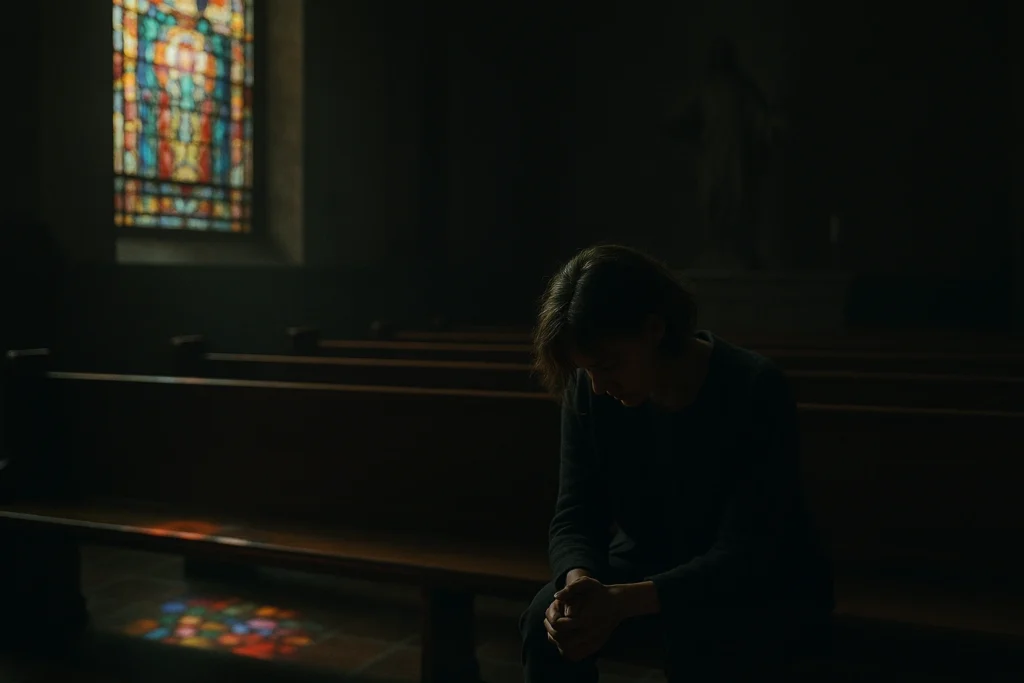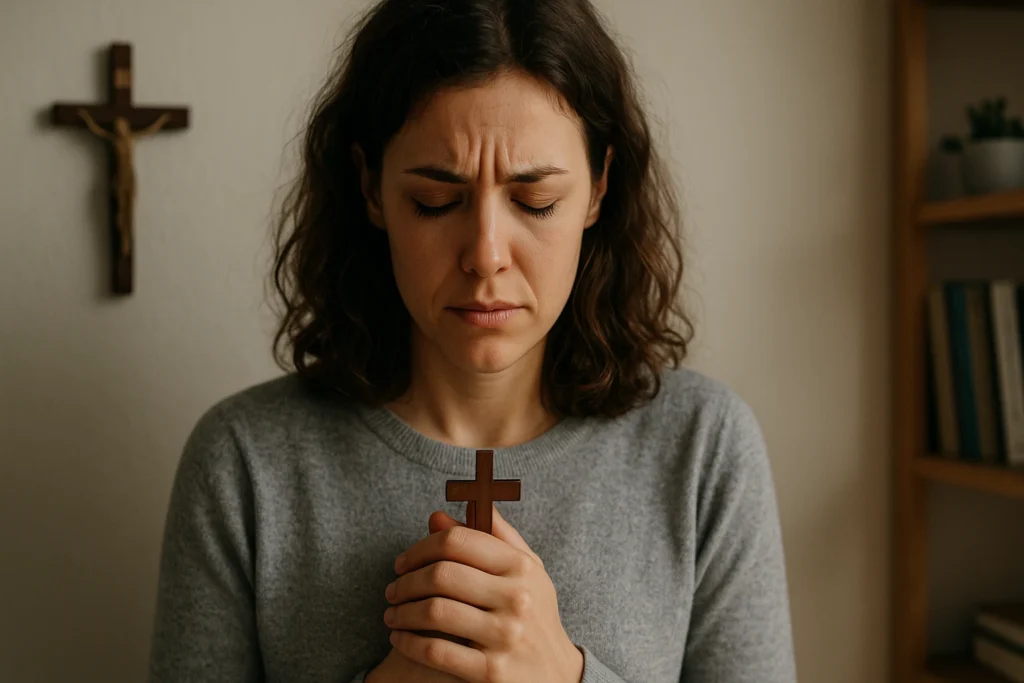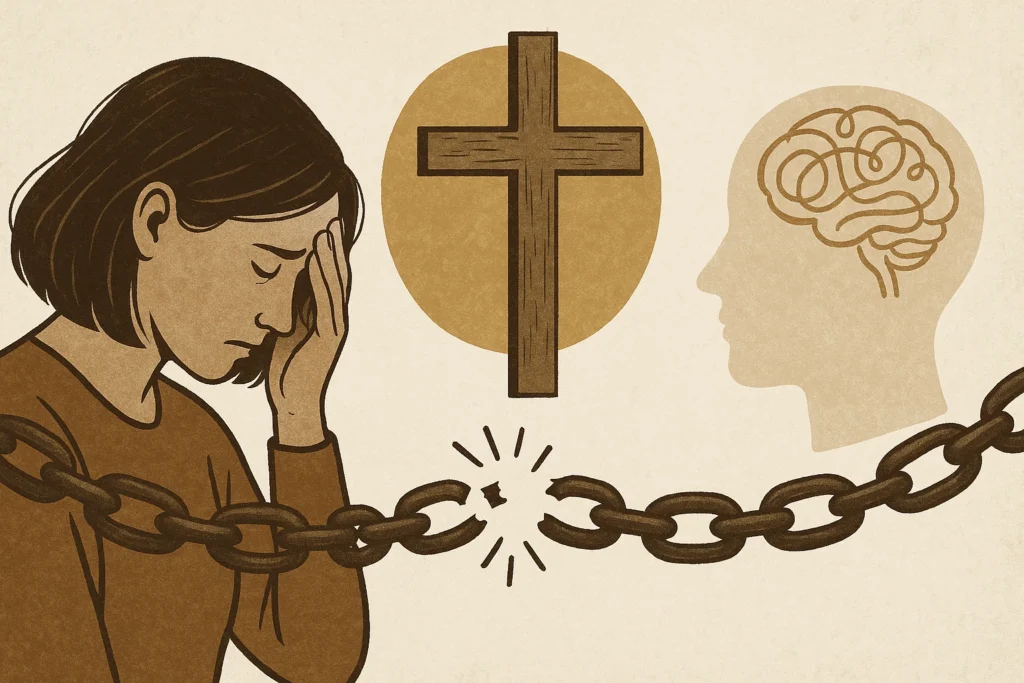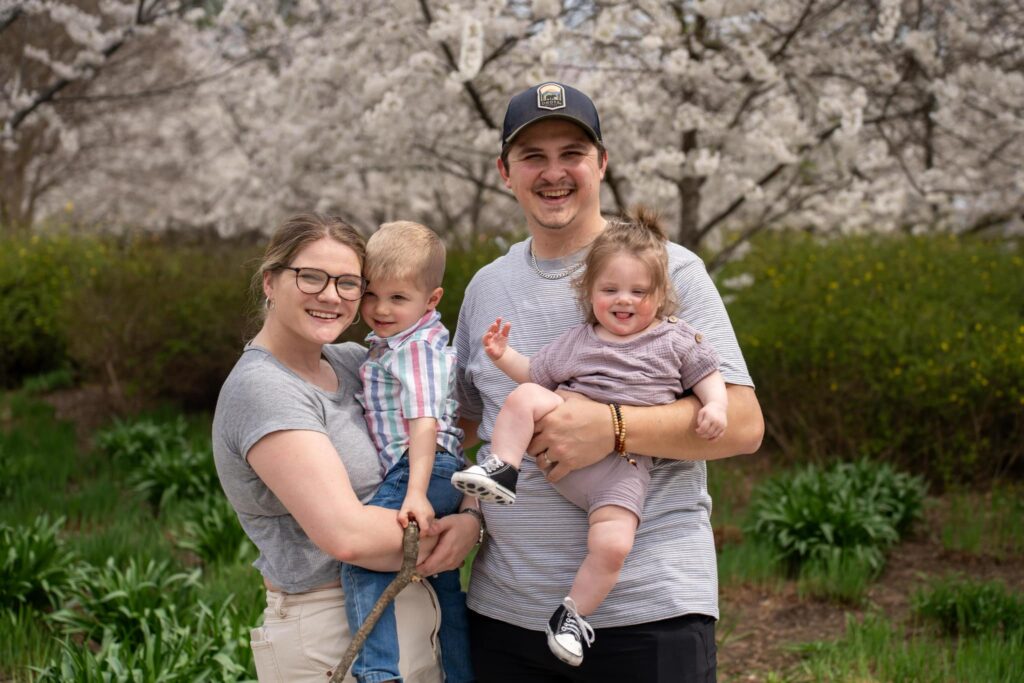Listen to Luke Johanni speak about this article on the Mind and Spirit Podcast!
When God Feels Far (Part 2): Explore how Catholic teaching and modern psychology together offer a path to healing.
God withdraws the feeling of His presence, not to punish us, but to further purify and strengthen our love and total reliance on him.
Welcome
Hey friends! Welcome back to Mind and Spirit, the podcast where Catholic faith meets psychology and we explore what real healing looks like. I’m Luke Johanni, your Catholic-integrated therapist—helping you bridge faith and mental health so you can find peace, purpose, and restoration.
Don’t forget to subscribe, follow @LukeJohanni on social media, and visit RestoredChristianCounseling.com to submit your questions—they might even be featured in a future episode.
Let’s dive in.
When God Still Feels Silent
Last time, in Part 1 of When God Feels Far, we talked about the silence that follows our wounds, how betrayal, grief, or fear can make it feel like God has stepped away. We looked at how faith and therapy together can help us reframe that silence, reminding us that God never abandons us; even when our pain tries to tell us otherwise.
Silence Raising Questions
But what happens when you have been faithful? When you’re praying, showing up, doing what’s right; and heaven still seems quiet? What do you do when you’re not running from God, but running toward Him, and yet every prayer feels like it disappears into thin air?
That kind of silence can feel confusing. Even cruel. You may start to wonder, “What did I do wrong? Why can’t I feel Him anymore?”
Silence as the Dark Night of the Soul
If that’s where you are, I want you to take heart. Because that silence isn’t God abandoning you. That silence is God inviting you into a deeper relationship with Him.
The saints called this mysterious season the Dark Night of the Soul: a time when God withdraws the feeling of His presence, not to punish us, but to further purify and strengthen our love and total reliance on him. And to teach us to love Him for who He is, not just for what He gives.
It’s the difference between loving someone because of how they make you feel and loving them simply for who they are.
Silence for a Reason
And here’s what’s beautiful about this: in that darkness, something sacred is being formed in you. The silence that feels like distance is often the space where real intimacy begins.
Today, we’re going to explore why this happens, how to discern the difference between spiritual dryness and depression, and how to walk through both with wisdom, faith, and hope. Because God’s silence doesn’t mean He’s gone. It may mean that He’s drawing you closer.

The Dark Night of the Soul
The Dark Night is not God turning away. It’s God teaching your soul how to stand in His presence without needing to see Him.
St. John of the Cross
The phrase Dark Night of the Soul comes from St. John of the Cross, who was a 16th-century Carmelite mystic who endured imprisonment, misunderstanding, and deep spiritual isolation.
Out of that darkness, he wrote words that have guided Christians for centuries who struggled with this. He said, “In this dark night, the soul learns perfect love. For when it possesses nothing, it is possessed by God.” (Dark Night I.9)
The Dark Night isn’t about God handing down punishment. It’s about further purification. It’s what happens when God gently withdraws the feeling of His presence so that our love can grow; by becoming less about emotional comfort and more about closeness with Him.
The Catechism
The Catechism of the Catholic Church (§272–274) describes this mystery beautifully: “Faith is often lived in darkness and can be put to the test. The experience of God’s apparent silence can be a real trial for the believer. Yet in trusting God in this darkness, He can reveal Himself precisely in this way.”
In other words, the absence of sensation is not the absence of relationship. Let’s unpack this with an example, imagine a parent teaching their child to ride a bike. At first, the parent runs alongside, hand steady on the seat, whispering encouragements. But eventually, they let go, not to abandon, but to help the child learn balance. The parent never leaves the street; they’re still close enough to catch them if they fall.
The Dark Night works the same way. God’s seeming distance isn’t rejection; it’s trust. He knows you’ve reached a place where faith can begin to ride without training wheels, where love is no longer dependent on emotional security but on fidelity.
St. Thérèse of Lisieux
St. Thérèse of Lisieux, who also endured her own dark night, once said, “If you only knew what darkness I am plunged into… I make acts of faith even though I do not feel any faith.”
Her faith wasn’t built on emotions. It was built on trust.
An Invitation
And that’s the heart of the Dark Night: when God’s voice quiets, He’s inviting you to listen differently to recognize Him, not by feeling, but by diving further into reliance on Him through surrendering our wills and needs to His mercy.
In the same way that therapy helps us uncover hidden patterns in silence (like what’s underneath our anxiety or what is our body is trying to tell us) this spiritual silence helps reveal what our soul truly rests in.
The Purpose
God uses this distance to peel away our false dependencies: comfort, control, emotion, even religious success, until only love remains. Because when everything else fades, you discover something unshakable: God doesn’t just satisfy us; he completes us. Which is echoed in the words of Saint Augustine, “Our heart is restless until it rests in you.”
The Dark Night is not God turning away. It’s God teaching your soul how to stand in His presence without needing to see Him.
Are You in the Dark Night or Depression
Longing is different that hopelessness.
This brings us to an important question; because what we’ve just described can sound a lot like something else many people face: depression.
The truth is, both experiences can feel similar. Both can leave you feeling numb, empty, or far from God. Both can make prayer feel heavy and your world lose color. But they’re not the same thing, and it matters to know the difference.
Sometimes, in the quiet of the Dark Night, depression can hide underneath. Other times, depression can be mistaken for a spiritual trial when what’s really happening is that your mind and body are exhausted or carrying unresolved pain.
That’s why both spiritual direction and therapy can be vital companions on your life long journey towards the Father.
Before we go any further, I want to say this clearly: If what you’re feeling includes deep sadness, hopelessness, or thoughts of self-harm, that’s not merely God testing your faith. Longing is different that hopelessness. It’s a wound that deserves care. Please reach out for help. You do not walk that road alone.
Now, let’s look at a few differences.
Signs of a Potential Trial From God
- There’s dryness in prayer, but also a continued desire for God.
- You still long for meaning, even if you can’t feel it.
- Beneath the weariness, a quiet trust or surrender begins to take root.
- You feel stripped down, but not destroyed; like something is being refined.
Signs of Potential Depression
- Loss of joy or motivation in almost every part of life, not just prayer.
- Physical changes in sleep, appetite, or energy.
- Thoughts filled with guilt, worthlessness, or despair.
- Persistent hopelessness or even thoughts of self-harm.
Can It Be Both?
Now, sometimes, it’s both. The soul and body are woven together; what happens in one often echoes in the other. Spiritual dryness can awaken emotional pain that was buried. Likewise, depression can make God’s voice harder to hear, even when He’s near.
That’s where therapy can become an act of faith; because healing the mind often opens space for the heart to encounter God again.
What Does Psychology Say?
From a Cognitive Behavioral Therapy perspective, depression tends to distort thinking. Thoughts like “Nothing will ever change” or “God has left me” take center stage. In CBT, we learn to notice those thoughts, name them, and gently challenge them with truth.
From a slightly different therapeutic approach, Acceptance and Commitment Therapy, we learn to accept what we feel without judgment, while still acting from our deepest values. So that we can keep showing up in love, even when emotion doesn’t follow. And this isn’t pretending you’re okay; it’s choosing to stay anchored to what matters most: God’s presence, your relationships, and your purpose.
St. Teresa of Calcutta
An example of complete untethered love.
One of the most powerful examples of this perseverance is St. Teresa of Calcutta. In Come Be My Light, she wrote: “The place of God in my soul is blank. There is no God in me. When the pain of longing is so great, I just keep smiling at Him.”
This act of faith on her part wasn’t the common phrase of “living in denial.” It was a willful choice to hold fast to what she knew to be true, even if she didn’t feel it. This is an example of complete untethered love. A love that gives and gives without requiring anything in return.
Her example is a vital truth for us, too: Your feelings are important (they tell part of the story) but they don’t always tell the whole truth. Faith is what lets you hold both realities at once: “This hurts deeply, and yet I know God is here.”
When the soul walks through darkness, it needs both grace and guidance; one speaks to the heart, the other to the mind.

Why Does God Permit The Dark Night
If you’re wondering, “Why would a loving God allow this?” you’re not alone. That question sits at the center of every dark night.
When heaven feels silent and your prayers seem unanswered, it can feel like something has gone terribly wrong. But the silence itself isn’t proof of God’s absence. It’s often the proof of His trust in you.
St. John Paul II wrote in Salvifici Doloris §13: “Suffering unleashes love. It opens the heart to the deepest measure of self-gift.”
Covenant Love
God allows this night not to punish you, but to purify, to deepen love, to detach us from what is passing, and to draw us into what is eternal. He uses it to shift our relationship with Him from dependence on feelings to the permanence of covenant love. Covenant love is the kind of love God has for us. It’s not based on feelings or achievements, but on His promise to us. It’s a love that endures, that keeps giving even in silence, because it’s sealed in His very nature.
So, this silence is the movement from emotion-based faith “I feel God is close, so I trust Him,” to covenant-based faith “Even when I feel nothing, I still belong to Him and He to me.”
That’s the kind of faith that can’t be shaken, because it’s no longer built on what we experience, but on who He is.
Only To Those Who Are Ready
And here’s something we rarely think about: God doesn’t entrust this kind of darkness to just anyone. He allows it when a soul is mature enough to grow, when faith has been strengthened enough to be tested.
As St. John of the Cross explained, “God leads each one according to what is best for them.”
The beginner receives consolations to strengthen faith; the mature are invited into purification so that faith becomes unshakable. This isn’t a divine cruelty. It’s a divine confidence in you. God permits this trial because He sees in you the capacity, through His grace, to persevere.
Genuine Love
St. Teresa of Ávila once said, “When we are faithful in dryness, we do more in one hour than in many days of consolation.” (Interior Castle IV)
What she means is that love proven in the dark is the most genuine love of all. It’s the love that no longer relies on reward but rests entirely on a the relationship.
Example
The Catechism (§273) reminds us, “Faith believes in God and believes that He rewards those who seek Him. It is then that faith is tested.”
Think of it like this: a teacher gives advanced lessons only to the student who’s ready to learn them. The test isn’t to shame the student. It’s to reveal how far they’ve come.
That’s what the Dark Night does. It reveals how much of your love has become anchored in our understanding of who God truly is rather than emotion. And while that testing hurts, it also heals. Because in letting go of what once made you feel safe, you begin to stand in something even stronger: trust.
A Therapeutic Lens
From a therapeutic lens, this mirrors how growth often works in therapy. Sometimes a client reaches a point where the “training wheels” of reassurance have to come off. The therapist gently steps back so the person can discover new confidence, internal stability, and resilience. In the same way, God withdraws the felt sense of His nearness so that we can practice faith that is freely chosen, not emotionally sustained.
So, the next time you find yourself asking, “Why would God let me walk through this darkness?” remember: It’s because He believes you’re capable of walking by faith, not by sight. Because He knows that when you emerge from this night, you won’t just believe in Him. You’ll belong to Him in a new way.
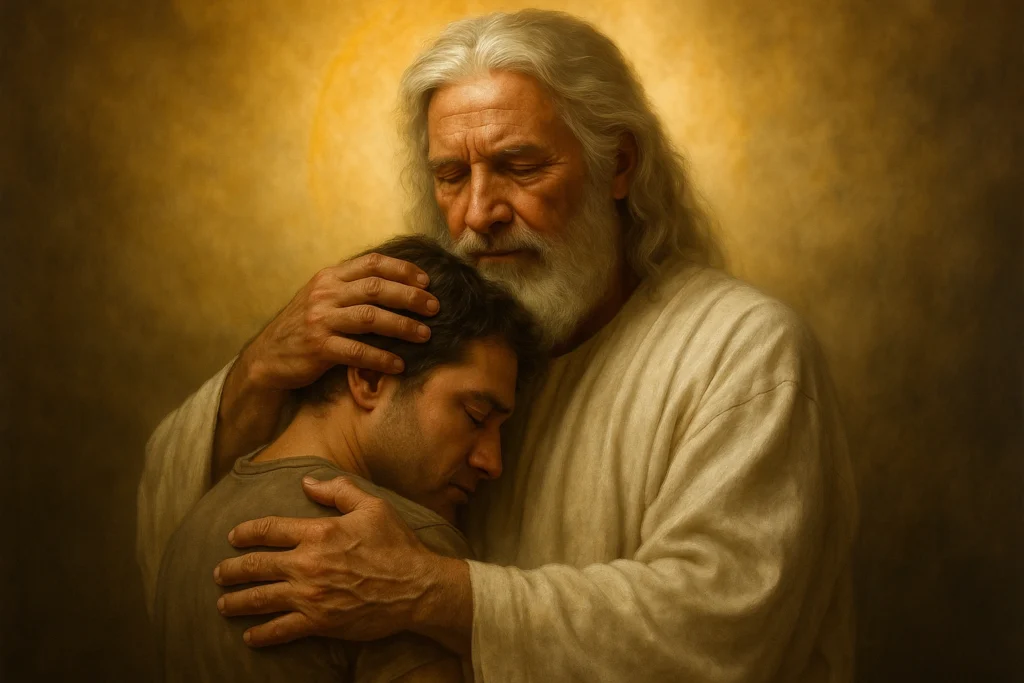
What to Do in a Dark Night of the Soul
God has not abandoned you. His silence isn’t rejection; it’s an invitation.
So, how do we live through a Dark Night? How do we stay faithful when God feels silent, when prayer feels dry, and when the old ways of feeling close to Him don’t seem to work anymore?
4 Ways of Walking In this Time
Here are four ways to walk through this period: not to escape the darkness, but to meet God within it and continue growing through it.
1. Stay in the relationship.
Keep showing up. Pray simply. Whisper, “Lord, I believe; help my unbelief.” (Mark 9:24)
St. John Paul II once wrote that “prayer develops into silent love, until words give way to presence. That’s what this season is about. It’s learning to remain with God even when you can’t feel Him.
Think of marriage. In the early days, love often feels effortless and full of emotion and excitement. But as time passes, the real beauty of marriage is found in choosing each other, again and again, even when the spark feels dim. Now, of course, God never wrongs us the way spouses sometimes do. But the way love grows in marriage (through fidelity, self-gift, and dying to self) mirrors the way our relationship with God matures.
In other words, every time you choose to stay (when you pray without feeling anything, when you keep loving without reward) that choice itself becomes an act of faith. That’s where trust takes root. That’s where feeling turns into faith.
2. Stay sacramental.
Keep close to the Eucharist. Go to Confession. Read Scripture. When you can’t feel God, go where He promised to be.
Psalm 42 captures the tension perfectly: “Why are you cast down, O my soul? Hope in God, for I shall again praise Him.”
The sacraments root you in grace when emotion feels unreliable.
3. Stay connected.
Isolation intensifies darkness. Reach out to community, to a spiritual director, to a therapist. Every time you stay present to relationship when you want to withdraw, you teach your nervous system that love is still safe.
St. John Paul II reminded us that we only discover our true selves through the sincere gift of ourselves to others. He taught us that relationships aren’t a distraction from God; they’re one of the primary ways His love reaches us when we can’t sense Him directly.
Healing often happens in proximity to others. In faith and psychology alike, connection rewires fear into trust.
4. Practice faithful presence.
Do small acts of love even when you feel nothing, a quiet prayer, a word of encouragement, a moment of gratitude. Faith in action rewires despair into hope.
As Viktor Frankl wrote, “In some way, suffering ceases to be suffering at the moment it finds a meaning.”
For us, that meaning is found in the Cross: Christ transforms pain into participation in His redemption.
Note of Advice:
And as you practice these things, I encourage you to find some solace (peace) in this simple truth: God has not abandoned you. His silence isn’t rejection; it’s an invitation.
Lean on that truth for comfort in the midst of dryness. Let it become your anchor when emotions fade. Because even in this night, His presence hasn’t changed. What’s changes is only the way He’s teaching you to experience it. Faith isn’t proved by feeling God. It’s proved by staying with Him when you don’t.
The Promise and Transformation
Every saint who has walked through the Dark Night came out of it changed, not because the pain disappeared, but because the love that carried them through became stronger than the pain itself.
Transformation
St. Teresa of Calcutta once said, “If I ever become a saint, I will surely be one of ‘darkness.’ I will continually be absent from heaven; to light the earth of those in darkness.”
That’s what transformation looks like.
Weakness Becomes Strength
When you walk through this night and choose to stay, the love that once felt silent begins to mature into something radiant. You become a vessel of compassion for others still searching for light.
Wounds Become Tools for Healing
In therapy, we often say that the places we’ve been healed become the places we’re most equipped to help others heal. The same is true spiritually. God never wastes suffering. He redeems it by shaping it into empathy, tenderness, and wisdom.
St. John Paul II wrote that in every suffering we face, love has the power to be in his own words, “rediscovered and re-affirmed.” (Salvifici Doloris §30) He believed that when we unite our pain to Christ’s, it doesn’t diminish us. It expands our capacity to love. That’s the quiet miracle of transformation: the very wounds that once made us close in on ourselves become the places where we can pour ourselves out for others.
Faithfulness Becomes Holiness
The Dark Night teaches you to love as He loves: faithfully, freely, without condition. It teaches you that love isn’t measured by intensity, but by your steady choice to love. And that this faithfulness to choosing love becomes the soil where holiness grows.
Romans 8:28 reminds us, “All things work together for good for those who love God.” Even silence is included in “all things.”
Love Becomes More like God’s Covenant Love
Think back to the marriage image. When spouses remain faithful through seasons of dryness or distance, something sacred happens. The relationship gains weight. It’s no longer built on excitement alone, but on their covenant love. The same is true in your relationship with God. When you keep choosing Him in the silence, love becomes deeper, steadier, and all the more unbreakable.
The Promise
And here’s the promise at the heart of it all: This night will not last forever. The dawn always comes. When it does, you’ll look back and realize that the silence was never empty. It was a season where grace was quietly growing.
God was forming something in you that only the silence could grow: humility, endurance, and a love purified of fear.
A Closing Invitation
So if you’re still in the night right now, hold on. Keep choosing to stay. Because the same God who allows the night is already shaping the light that will break through.
Next Time
Next time, we’ll talk about that kind of darkness, how to tell the difference between the Dark Night and depression, and how to walk through both with wisdom and hope.
Remember
God’s silence is not absence. It’s an invitation to deeper love.
Prayer
Let’s Pray
Lord Jesus, for everyone walking through Your silence, grant the grace of trust.
Teach us to love You not for the feelings You give, but for who You are.
When we cannot see You, remind us that You are nearer than our own breath.
May this night lead us not to despair, but to deeper union with You.
In the name of the Father, and of the Son, and of the Holy Spirit. Amen.
Closing
Thanks so much for spending this time with me on Mind and Spirit. If today’s episode spoke to you, don’t rush past it. Take a quiet moment to breathe and let God meet you right where you are.
If this episode encouraged you, I’d love for you to subscribe, leave a review, and share it with someone who might need it. Your support not only helps this show grow. It helps more people find hope and healing through faith.
To connect with me personally, follow and message me on Instagram @LukeJohanni, or visit RestoredChristianCounseling.com for more resources.
And if you have a question you’d like me to answer in a future episode, just head to the Podcast page on my website and submit it. I’d love to hear from you.
I’m Luke Johanni, and this has been Mind and Spirit. Until next time, may the peace of Christ be with you.
Sources/Resources
- Dark Night of the Soul – St. John of the Cross
- Story of a Soul – St. Thérèse of Lisieux
- Interior Castle (Book IV) – St. Teresa of Ávila
- Come Be My Light – St. Teresa of Calcutta
- Salvifici Doloris (1984) – St. John Paul II
- Novo Millennio Ineunte (2001) – St. John Paul II
- Catechism of the Catholic Church — §§ 272–274, 273
- Confessions (Book I, ch. 1) – St. Augustine
- Man’s Search for Meaning – Viktor E. Frankl
- Mark 9:24
- Psalm 42:5
- Romans 8:28
- Deuteronomy 31:6
- Isaiah 49:15
How Porn Hijacks Your Life (and How to Break Free)
Authentic Masculinity: Strength Ordered To Love
The Silent Struggle of Men: Finding a New Strength
When God Feels Far: Why You Feel Abandoned and How to Find Him Again (Part 2)
When God Feels Far: Why You Feel Abandoned and How to Find Him Again (Part 1)
Healing Trauma: With Psychology and Faith (Part 2)
Healing Trauma: With Psychology and Faith (Part 1)
Healing Scrupulosity and OCD: A Proven Path of Faith
The Truth About Anxiety: One Size Doesn’t Fit All
Breaking Free from Shame: The Power of Faith and Psychology
Mind and Spirit: From Brokenness to Calling

Have a question? Want it answered?
Submit your question below and it maybe answered on the Mind and Spirit Podcast and in this Blog. If you’d like a personal email response, please include your email.*
*Please note: Submitting a question through this form does not constitute therapy, nor is it intended to. It does not establish or initiate a therapeutic relationship. Learn more in our Privacy Policies.
Follow me on Instagram and Facebook or subscribe to the blog for weekly encouragement.

